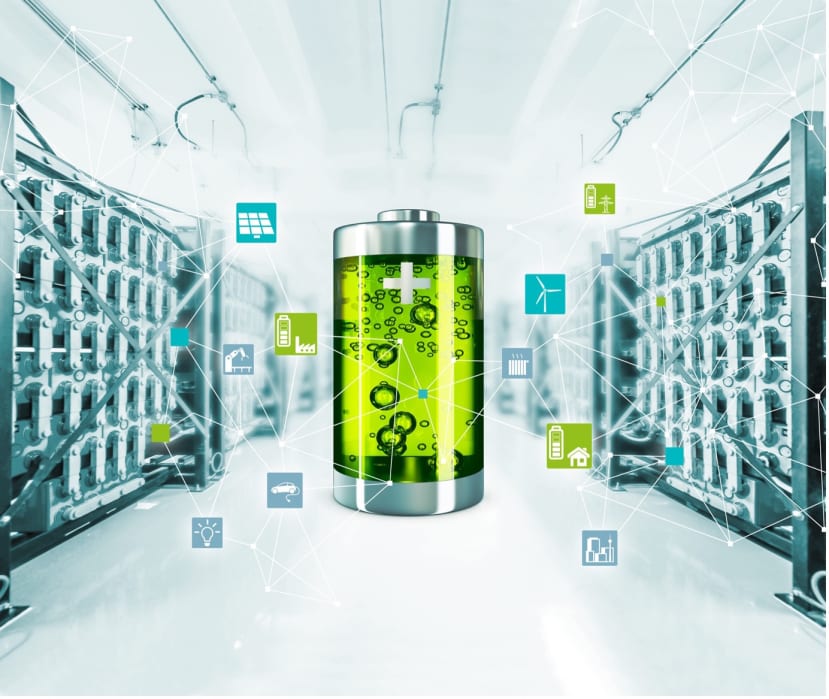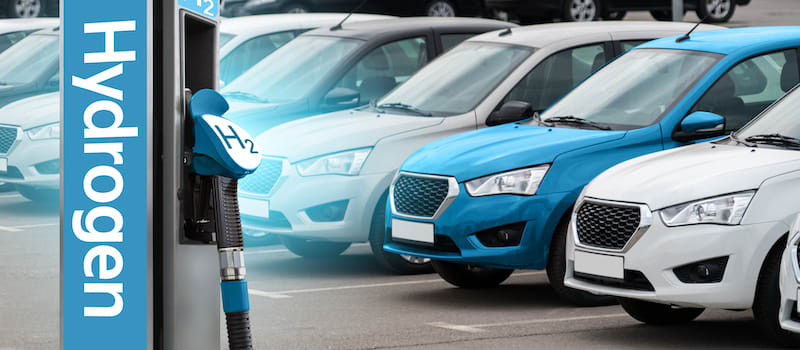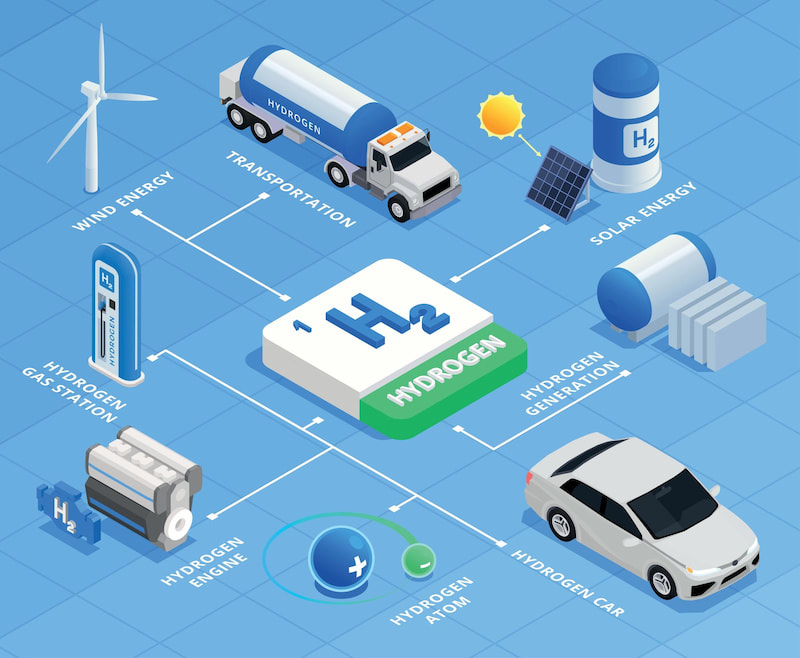Power-to-X and the All Electric Society
Follow articleHow do you feel about this article? Help us to provide better content for you.
Thank you! Your feedback has been received.
There was a problem submitting your feedback, please try again later.
What do you think of this article?
The search for new sources of energy is one of the greatest challenges of the modern age. The ideal energy strategy is one that reduces the damage that we are causing to the environment and is less vulnerable to global events. About a year ago, I wrote an article about hydrogen as a possible alternative to fossil fuels for the transport industry.
Hydrogen is of huge interest due to its abundance and energy density, but it does present several challenges as a potential fuel source. Hydrogen is highly flammable – even explosive – in the presence of oxygen. Even a small hydrogen leak can be highly dangerous, which means that storage and transportation of hydrogen is not a trivial matter.
In addition, hydrogen production is not straightforward. Some extraction techniques such as the steam reforming of natural gas will result in large amounts of atmospheric carbon dioxide. The hydrogen produced using this method is therefore not environmentally sustainable. Other, cleaner methods are practical, but often at the cost of high amounts of energy. As a result, hydrogen produced using conventional methods is not “free” in terms of energy costs or environmental impact.
At the time, I came to the conclusion that hydrogen formed just one component of our energy strategy for the future. However, the conflict in Eastern Europe and tensions elsewhere have highlighted how easily energy supplies – especially in the form of oil and gas – can become bargaining chips in global disagreements. We currently depend on vast amounts of oil and gas that must be transported around the world. Reducing this dependency should be high on our list of priorities, and the events of recent months suggest that we should be looking harder at the hydrogen solution.
The Case for Hydrogen
With this as a background, I was therefore fascinated by a recent conversation with a colleague from connector company Phoenix Contact. He told me about the commitment that Phoenix Contact has made to the All Electric Society, and the more we talked, the more excited I became.
The All Electric Society is the name given to an energy strategy that will use sustainable sources to reduce our impact on the environment and allow us to take greater control of our own energy needs. At its heart, the All Electric Society will use electricity that can be generated in a clean, sustainable way. This might mean wind and solar power but could also include many more exotic techniques including wave and geothermal sources.
The problem with electricity is storage. The electricity can be fed into the grid directly but, although electric vehicles prove that the latest storage technology is certainly highly capable, there are many applications for which battery solutions are not suitable.
Shipping is one of the most obvious examples. For ships that travel vast distances at sea, the size and mass of even the most advanced battery technology mean that electric power is not a practical solution. At the same time, the current shipping industry is a major polluter, generating a significant proportion of the nitrogen oxide and sulphur oxide that is released into the atmosphere. Finding a new power source for the shipping industry is therefore vital.
Power-to-X
The All Electric Society sees hydrogen as the solution to these problems. On its own, hydrogen might not be a practical alternative – storing free hydrogen efficiently requires heavy pressure vessels. However, in a process known as Power-to-X, hydrogen can be created using clean electricity and then combined with carbon captured from atmospheric carbon dioxide. This is then refined into liquids known as e-fuels which serve as drop-in replacements for traditional gasoline, kerosene or heating gas.
When used as a power source, these e-fuels offer a sustainable alternative to oil or gas. The energy that was used to create them is clean, as it is sourced from any of the renewable sources available. In addition, when used to power an engine they emit no more carbon dioxide than was used in their creation, making them carbon-neutral.
The other advantage of e-fuels over hydrogen is that they can be stored and transported safely using the same infrastructure as conventional fuels. In fact, they can be freely blended with normal fuel sources, which means that much of today’s transport network can start to use them immediately. There is no need to replace existing vehicles or engines.
These fuels can even be reconverted into electricity using conventional generators. This may not be as backward as it sounds. There are many locations around the world that are not connected to mains electricity and do not have the facilities to generate their own using wind or solar. E-fuels that are created sustainably and shipped using carbon-neutral methods will allow these remote facilities and communities to create the power they need.
Sector Coupling
This is known as sector coupling. Each sector – generation, distribution, storage and consumption – is linked. Resources are shared between each sector to ensure that energy is available where and when it is needed in the form that is most useful.
Sustainably created electricity and e-fuels created from hydrogen might offer us the solutions we need to reverse climate change. They will help to reduce our dependency on polluting and limited resources such as oil, and provide communities and industries with the ability to take control of their own energy needs.
Phoenix Contact has made its own commitment to the All Electric Society, not just in the products it manufactures, but in the way it makes them. You can read about their efforts here, and I urge you to take a look. While they are not the only company working towards this goal, it makes me happy that a connector manufacturer is willing to make bold commitments to the world in which we live.
Perhaps we can use them as inspiration and make commitments of our own.




